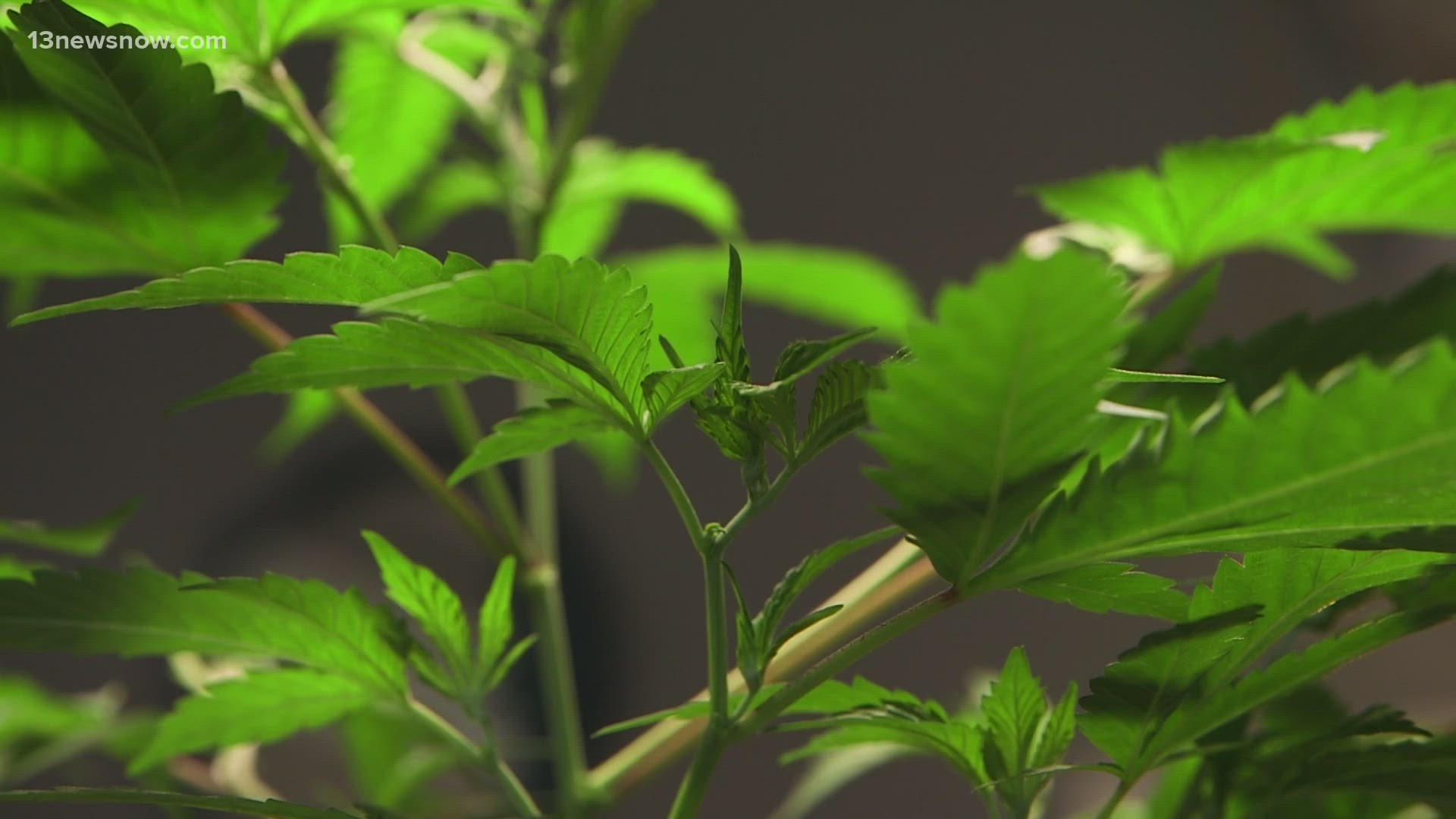RICHMOND, Va. — After lengthy and sometimes heated debate, both chambers of the Virginia General Assembly ultimately agreed to Gov. Glenn Youngkin’s proposed adjustments to a bill that aims to ban the recreational sales of intoxicating hemp-derived products.
Youngkin made changes his office said were intended to ensure the continued availability of certain therapeutic CBD products while toughening the bill’s effort to clear store shelves of products containing intoxicants like Delta-8 THC.
For over a year, Virginia lawmakers have been grappling with how to best regulate sales of vapes, edibles, and other products with Delta-8, which have soared in popularity nationwide, filling shelves at convenience stores and smoke shops even in places where marijuana isn't legal. It's an issue other states are wrestling with, too.
Hemp trade associations have warned that the bill could harm the industry.
“I do believe in licensing and regulation, but I don’t believe that you should blanket and take all these products away from people who are getting help from them," Dani Edwards said, owner of Happy Hempo in the heart of the Phoebus neighborhood of Hampton.
"It will be disruptive, things will have to come off the shelves," she added.
But supporters of the measure said it would bolster consumer safety, as the products — sometimes sold in packaging that mimics popular snacks — have sickened unsuspecting kids and adults.
According to data collected by 13News Now, the Virginia Poison Center received more than 400 calls for THC-related calls in 2022. More than 100 of those came among children under the age of 6.
“We will be doing a good deed for the citizens of the Commonwealth today,” said Sen. Emmett Hanger, a sponsor of the legislation.
The original bill aimed to ban intoxicating products by capping the total amount of THC at 2 milligrams per package and 0.3% total THC. It also would have required topical hemp products to have a bittering agent to deter consumption.
Youngkin's substitute would remove the bittering agent requirement and allow the 2-milligram THC cap to be exceeded if a product meets a 25:1 CBD to THC ratio. It would also require retailers to register with the state enforcement agency to sell any consumable hemp-derived product, according to a statement from Youngkin spokeswoman Macaulay Porter.
“The original bill, version would have completely rolled the hemp industry," Leandra Duquette said, with the Virginia Hemp Coalition.
“Sure people are interested and the interest in public safety, but we should do it in such a way that doesn’t destroy an industry," she added, noting that as much as 80-90% of a store's inventory could be affected by this change.
Among the parents pushing Youngkin for changes was Lisa Smith, whose 23-year-old daughter has a life-threatening form of epilepsy.
Smith said her daughter's quality of life improved tremendously from taking a CBD oil purchased from a Colorado-based company. But after the company warned it wouldn't be able to ship her the product if the bill were signed, Smith reached out to her representatives, House Speaker Todd Gilbert, and Youngkin's office and his wife, whom she met at a campaign event. The governor's office called to hear her concerns.
Smith said the bottle she orders for her daughter has 216 milligrams of THC — which would run afoul of the original bill — but so much CBD that there would be no mind-altering effects from drinking the whole thing.
“I'm glad we were heard and it wasn't just signed,” said Smith, since reassured by the company that her daughter's product will be available under the amended legislation.
But Sarah O'Hanlon, the mother of another child with epilepsy who has benefited from CBD therapeutics, said families like hers will “absolutely” be impacted in getting access to needed products, even under the amended version.
Representatives for hemp trade associations called Youngkin’s version an improvement but said it still threatens to harm the industry.
After both chambers sign off on the governor's entire recommendation, the bill as amended becomes law. Most new legislation takes effect on July 1.
The amended legislation would not move the state toward establishing a legal marijuana retail market.
The General Assembly, at the time fully controlled by Democrats, legalized marijuana in 2021 without setting up retail sales. Control of the House flipped later that year, and efforts since then to set up retail sales have gone nowhere.
It's currently legal to grow and possess marijuana within limits, and patients can access the drug through the state’s medical cannabis program, which wouldn’t be impacted by the hemp bill, said Hanger.

